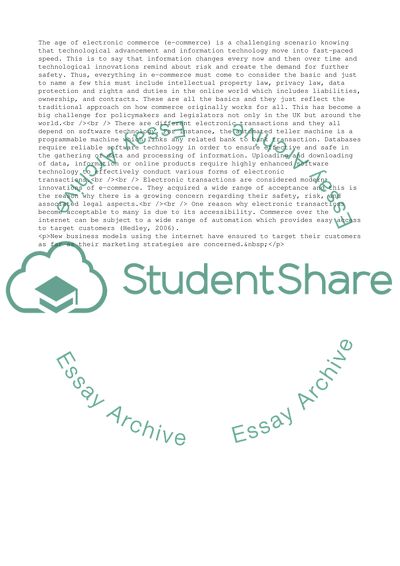Cite this document
(Software Technology and Electronic Transactions Essay - 1, n.d.)
Software Technology and Electronic Transactions Essay - 1. Retrieved from https://studentshare.org/business/1742694-e-business-law
Software Technology and Electronic Transactions Essay - 1. Retrieved from https://studentshare.org/business/1742694-e-business-law
(Software Technology and Electronic Transactions Essay - 1)
Software Technology and Electronic Transactions Essay - 1. https://studentshare.org/business/1742694-e-business-law.
Software Technology and Electronic Transactions Essay - 1. https://studentshare.org/business/1742694-e-business-law.
“Software Technology and Electronic Transactions Essay - 1”. https://studentshare.org/business/1742694-e-business-law.


